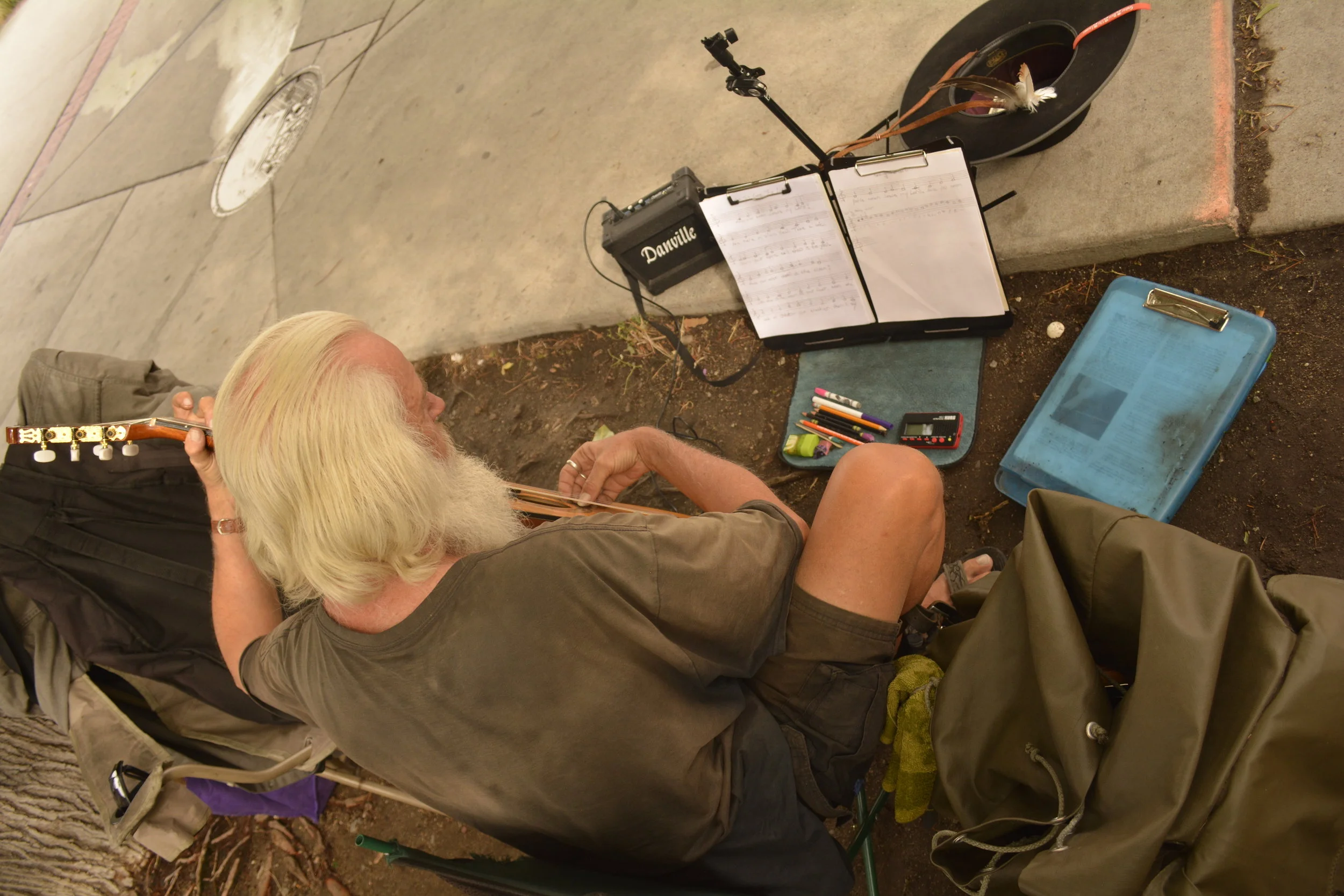It's an ominous, grey day in the 4th street motel district downtown corridor in Reno. An elderly motel resident with worsening health problems is stressing out, as he will soon need to move. A casino employee is looking for temporary rooms for his own special events staff. A code enforcement official is milling around. The Star Dust Lodge looks like it's being decontaminated. Pedestrians walk by the now cratered Carriage Inn.
With some but not much local media fanfare, the Jacobs Entertainment group has acquired over 30 downtown Reno properties, in an area anchored by its own Gold Dust West and its recently purchased Sands Regency Casino Hotel, which it plans to renovate with a new name.
Last month, there was a video and photo op with City Council members and Jeff Jacobs, the Chairman and CEO of Jacobs Entertainment, a former Ohio politician and Wall Street bonds trader, with full-on gentrification optics. The local politicians and outside developer smiled on top of the rubble of a long storied motel, which like many others has recently served as last gasp housing, amid a backlog of section 8 openings, full homeless shelters, rising rents and often times prohibitive background checks and deposit requirements.
The Star Dust Lodge is also out of commission now.
Will We Get an 'Arts District' as Initially Touted?
The Jacobs Entertainment group which has previously tried but failed to open casinos in places such as Indiana, Mississippi and Ohio, while owning a multitude of casinos elsewhere, mostly in Colorado and throughout Nevada, seems, based on its own indications, to have big plans in downtown Reno: a new mini-Vegas perhaps? a fountain district with roundabouts? an entertainment area mostly centered on gaming? Initially, plans were touted partly as an "arts district" to assuage our city council inclinations, perhaps, but it seems, lately, the arts component may go by the wayside.
A now increasingly familiar sight ... a motel emptied out and residents who used to live there facing more uncertainty and difficulty in getting a roof over their heads and a mattress to sleep on.
Where will the Motel Tenants Go?
Long-term tenants of motels, which are scheduled to be picked off and demolished one by one, are also going by the wayside. The Jacobs group has made some media splashes, donating money to very valuable initiatives such as NYEP, to one homeless family, and to the Reno Housing Authority among others. It's also helping people previously living in motels with some transitional stipends and pointing them to already overworked local government social workers and case managers.
But the tide of displaced will not abate. Negotiations are ongoing with other properties, including motels where hundreds of people now live, amid simultaneous pressure from code enforcement authorities.
On a macro level, and with so many elderly, sick, fixed income residents in motels which will soon be razed, shouldn't the city of Reno have a plan going forward to alleviate all this oncoming displacement, as it already struggles with current conditions now bound to get worse?
Photo Opinion Essay and Reporting by Our Town Reno, October 2017



















































































